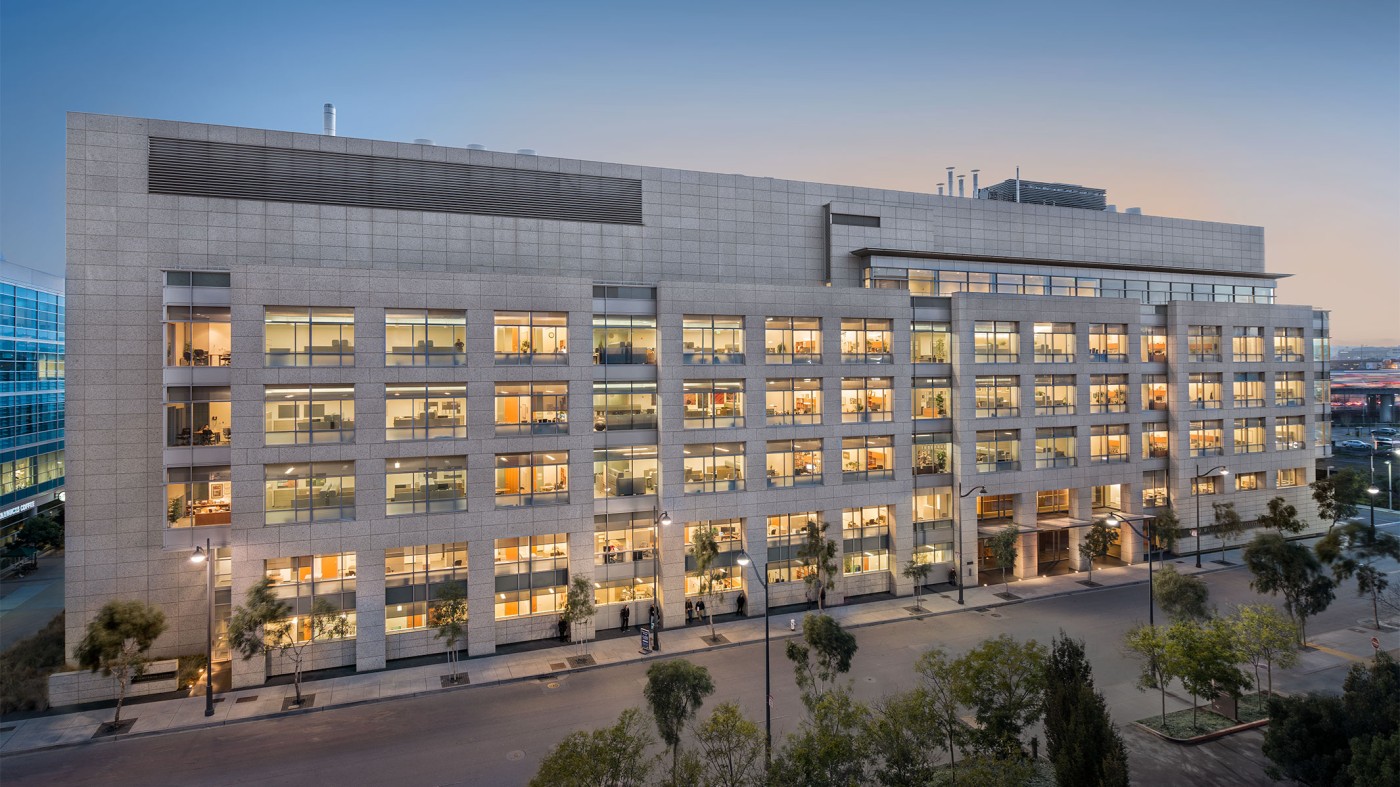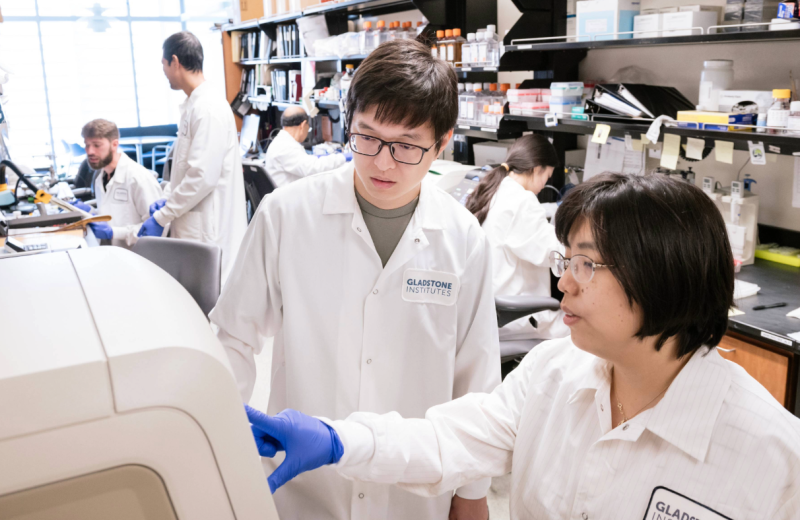Gladstone NOW: The Campaign Join Us on the Journey✕

SAN FRANCISCO, CA—Lennart Mucke, MD, who directs neurological research at the Gladstone Institutes, next week will receive the ARCS Foundation’s 2013 Pacesetter Award for his lifelong dedication to overcoming Alzheimer’s disease—and for mentoring students to take a similar approach.
The award, the second received by a Gladstone scientist, underscores the quality of research being conducted at this independent biomedical-research organization that was founded in San Francisco in 1979. The ARCS Foundation—which provides awards to academically outstanding U.S. citizens studying science, engineering and medical research—will present the award to Dr. Mucke at a October 28 luncheon honoring and celebrating ARCS Foundation Scholars. Dr. Mucke will give the luncheon’s keynote address, speaking about what it will take to defeat Alzheimer’s disease.
“Dr. Mucke leads Gladstone’s neurological research with a strong emphasis on collaboration and multi-pronged approaches to finding new disease solutions,” said Roulhac Austin, ARCS Foundation Northern California Chapter Co-President. “The ARCS membership applauds this approach and believes it has contributed to Dr. Mucke’s major insights into Alzheimer’s disease—insights we hope will lead to new and desperately needed treatments.”
To be sure, this acknowledgement of Dr. Mucke’s success in Alzheimer’s research comes at a critical time. Currently, there are no effective treatments to slow, prevent or halt this neurodegenerative disease—which robs people of critical brain functions including the ability to retain memories. As our nation’s sixth leading cause of death, Alzheimer’s afflicts one in nine Americans aged 65 or older, according to the Alzheimer’s Association. And the number of those with Alzheimer’s is expected to nearly triple by 2050—threatening to overwhelm our healthcare system.
In accepting the Pacesetter Award, Dr. Mucke joins the ranks of other preeminent San Francisco Bay Area executives who ARCS has also honored, including John Chambers, Chairman and CEO of Cisco Systems, Paul Otellini, former President and CEO of Intel, and Susan Desmond-Hellmann, Chancellor of the University of California, San Francisco (UCSF, with which Gladstone is affiliated).
“I am deeply honored to receive this award from an organization whose objectives are so nicely aligned with Gladstone’s,” said Dr. Mucke, who is also a professor of neurology and the Joseph B. Martin Distinguished Professor of Neuroscience at UCSF. “They promote science and medical research—and emphasize the values of using a collaborative, multi-faceted approach. These are founding tenets at Gladstone and will be critical to achieving our goals of better treating, preventing and ultimately curing neurological diseases such as Alzheimer’s.”
Inspired by a grandfather who had Alzheimer’s disease, Dr. Mucke founded Gladstone’s neurological research program 15 years ago and today leads more than 100 students, postdocs, research scientists and principal investigators in the search for new understanding of and therapies for some of the world’s most devastating illnesses—including Alzheimer’s, Parkinson’s, ALS, and multiple sclerosis.
In his own laboratory, Dr. Mucke focuses on the processes that result in memory loss and other major neurological deficits in Alzheimer’s. For example, he discovered that reducing levels of a protein called tau can prevent cognitive deficits in animal models of the disease. He is also in the process of launching a clinical trial of an FDA-approved anti-epileptic drug that—as his lab discovered in 2012—might improve brain functions in Alzheimer’s disease. And in his latest studies, he is exploring the therapeutic potential of a fascinating protein called klotho, which seems to be able to delay aging and counteract aging-related diseases. Ultimately, he expects the effective prevention and treatment of Alzheimer’s to include multiple therapeutic strategies—in much the same way as hypertension or cancer often require a combination of different medications.
Among Dr. Mucke’s previous research awards are the MetLife Foundation Award, the Khalid Iqbal Lifetime Achievement Award and the Zenith Award from the Alzheimer’s Association, and the Potamkin Prize from the American Academy of Neurology. He is the second Gladstone physician-scientist to receive the Pacesetter award. Last year, Gladstone President R. Sanders “Sandy” Williams, MD, also received the award.
Fueling Discovery at the Frontiers of Neuroscience: The NOMIS-Gladstone Fellowship Program
Fueling Discovery at the Frontiers of Neuroscience: The NOMIS-Gladstone Fellowship Program
The NOMIS-Gladstone Fellowship Program empowers early-career scientists to push the boundaries of neuroscience and unlock the brain’s deepest mysteries.
Institutional News Neurological Disease Mucke Lab NOMISInside the Brain: Tackling Neurological Disease at Its Roots
Inside the Brain: Tackling Neurological Disease at Its Roots
For World Brain Day, discover some of Gladstone’s latest breakthroughs in neurological research.
Gladstone Experts Research (Publication) Alzheimer’s Disease COVID-19 Parkinson’s Disease Neurological Disease Akassoglou Lab Corces Lab Huang Lab Mucke LabHope for Alzheimer’s: A Conversation with Gladstone’s Lennart Mucke
Hope for Alzheimer’s: A Conversation with Gladstone’s Lennart Mucke
Mucke, director of the Gladstone Institute of Neurological Disease, discusses what's next for Alzheimer’s research, the role of nonprofit research in developing new therapies, and why he's more hopeful than ever for a future where neurodegenerative diseases are fully treatable—and even preventable.
Alzheimer’s Disease Neurological Disease Mucke Lab Aging



